Supporting Seniors With Practical Tools to Track Daily Activity and Diet

Why Tracking Activity and Diet Matters for Seniors
As individuals age, maintaining a healthy lifestyle becomes increasingly vital for preserving independence, managing chronic conditions, and enhancing overall well-being. Today's technology offers a variety of practical tools designed specifically for seniors to track daily physical activity and diet, helping them stay motivated and informed on their wellness journey. This article explores key digital resources and programs that support seniors in monitoring their health effectively.
Fitness and Activity Apps Tailored for Older Adults
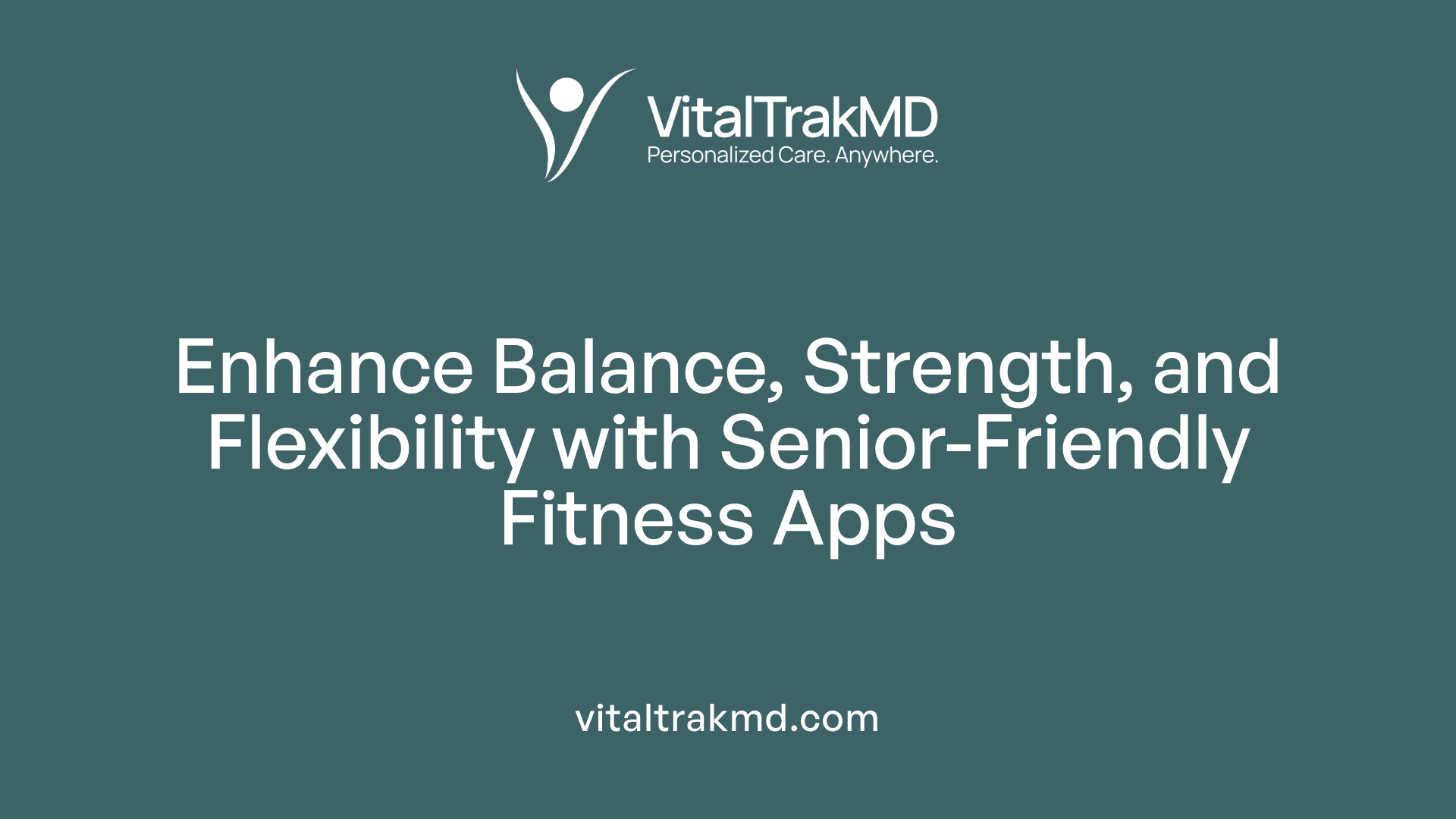
What apps help improve flexibility, strength, and balance for older adults?
Several fitness apps are designed specifically to enhance flexibility, strength, and balance among seniors, which are crucial for maintaining independence and overall health.
Which senior-focused fitness apps are available?
- SilverSneakers GO: Offers guided workouts, flexibility routines, and customizable programs specifically for participants in the SilverSneakers program.
- Better5: Features low-impact, short workouts emphasizing balance, strength, and flexibility, tailored for adults over 50.
- Tai Chi for Beginners: Provides videos and guidance to boost balance, flexibility, and mental clarity.
- FitOn: Delivers free, on-demand fitness classes including yoga and low-impact exercises suitable for older adults.
How do guided workouts and low-impact exercises benefit seniors?
Guided workouts provide structure and safety while encouraging consistent exercise habits. Low-impact workouts minimize joint stress and reduce injury risk while improving mobility and muscle tone. Apps combining these elements help seniors stay active, improve stability, reduce falls, and support overall wellness.
These tailored apps empower older adults to engage in appropriate physical activity conveniently, enhancing their quality of life and independence.
Comprehensive Diet and Weight Management Tools
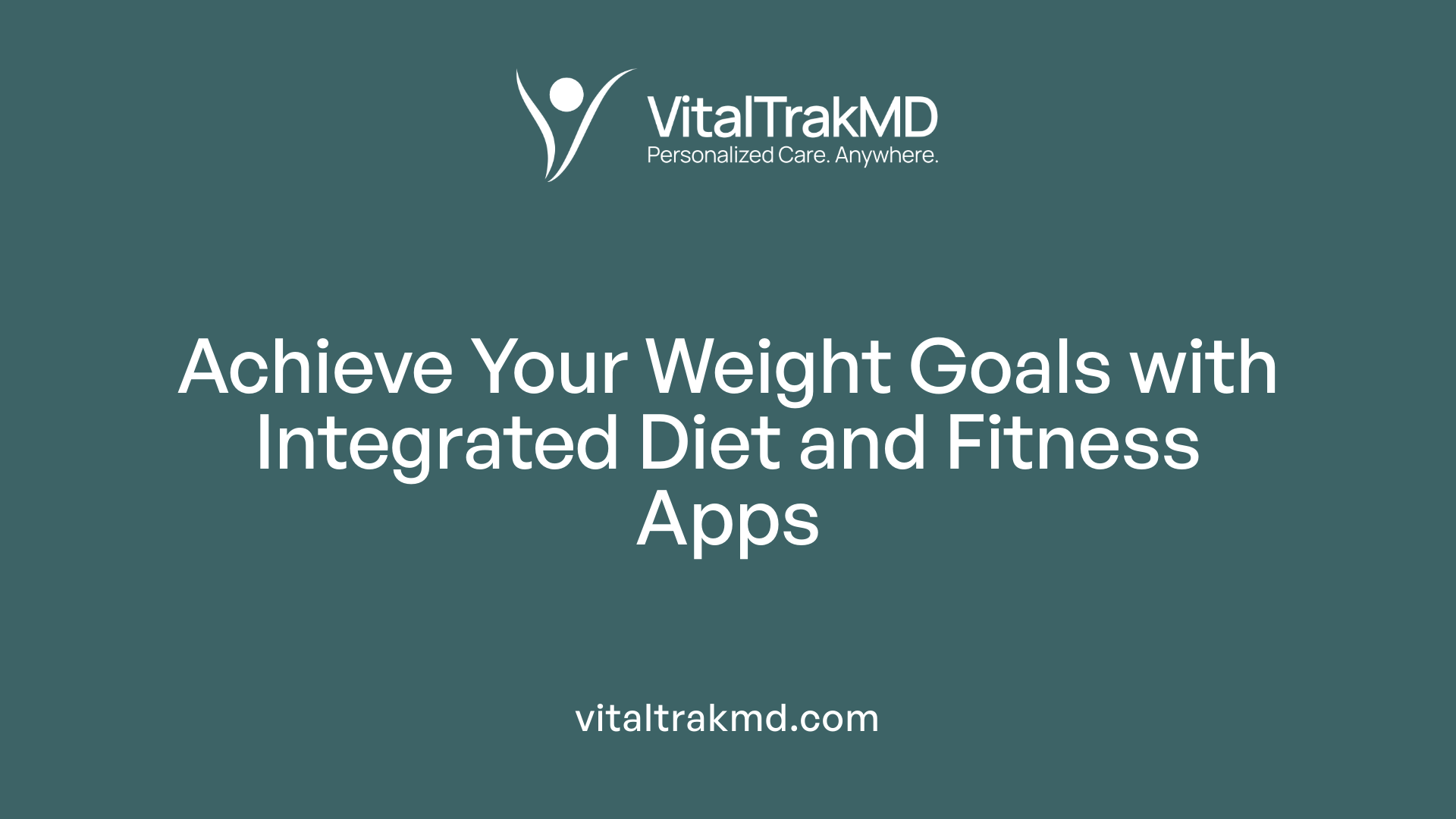
How do apps combine calorie tracking with exercise logging?
Apps like MyFitnessPal and Noom integrate calorie tracking with exercise logging to offer a complete picture of users' health behaviors. By logging meals and physical activity, these tools help users monitor energy intake versus expenditure, fostering awareness that supports weight management and overall wellness.
What are some popular diet tracking and weight loss apps for seniors?
Several apps are well-suited for older adults seeking to manage weight:
- MyFitnessPal: Offers a vast food database, integrates exercise tracking, and provides community support to maintain consistent healthy habits.
- Noom: Includes meal logging, workout tracking, access to healthy recipes, and professional health coaching for personalized guidance.
- Fooducate Diet & Nutrition Tracker: Helps decode nutrition labels by scanning barcodes and encourages healthier food choices.
- Lose It!: Features calorie budgeting, barcode and photo logging, and motivational challenges to boost engagement.
These options combine usability with targeted features supporting seniors' dietary and fitness needs.
How does self-monitoring contribute to weight loss success?
Research shows that self-monitoring using apps significantly increases awareness of eating and exercise patterns. This heightened awareness correlates with greater weight loss. Tracking behaviors like calorie intake, nutrient consumption, physical activity, and weight encourages accountability and informed decisions.
Furthermore, digital tools provide automatic calorie counting, nutrient information, and visual goal cues, boosting motivation and engagement. Notably, digital monitoring can effectively support weight loss even without in-person coaching, making it accessible for seniors managing their health independently.
Structured Programs and Professional Support for Sustainable Health
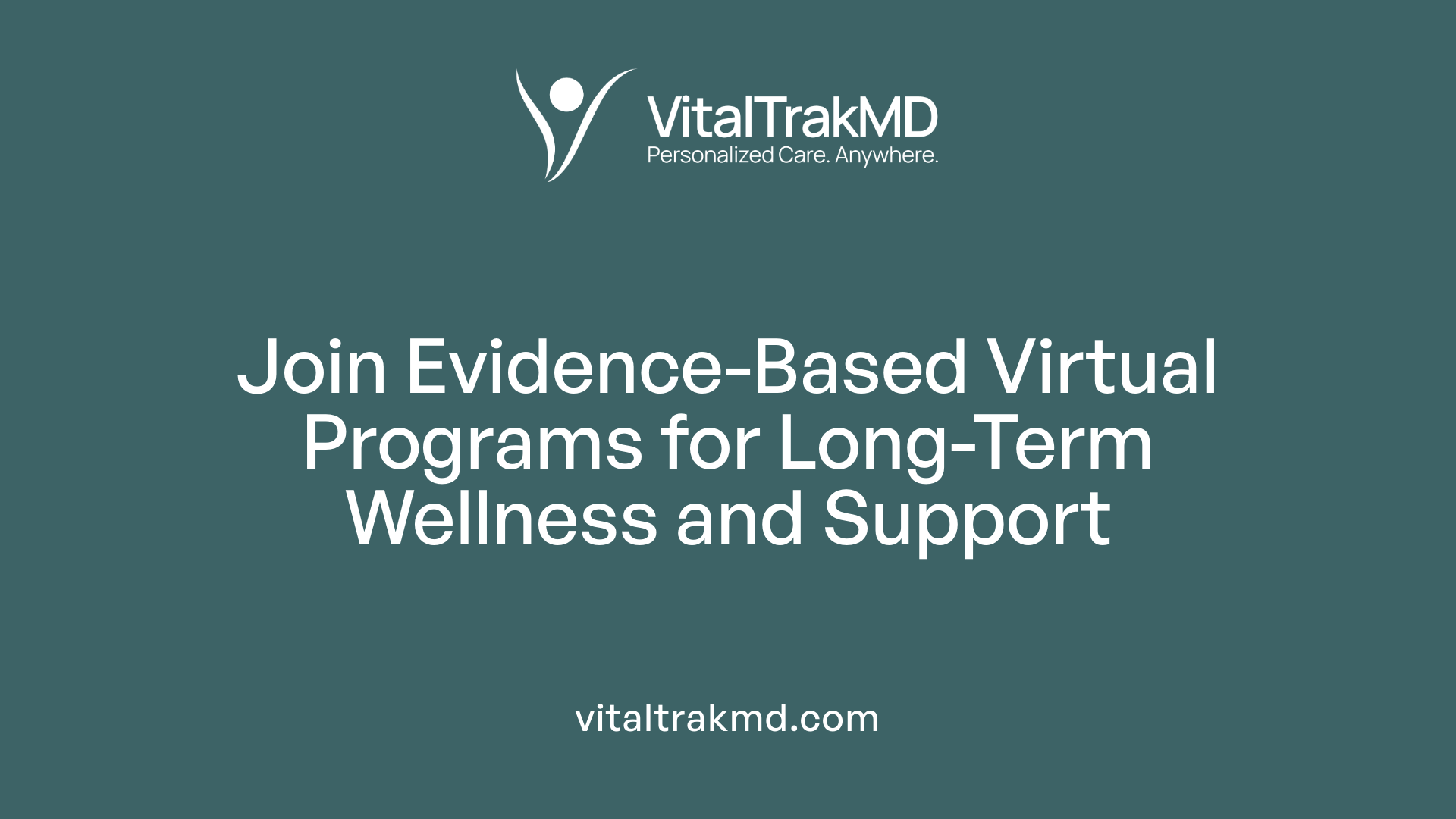
What Are Evidence-Based Virtual Diet and Wellness Programs?
Structured virtual programs designed specifically for older adults promote sustainable health by combining nutrition education, physical activity, and behavioral change. One notable example is the "Eat Smart, Move More, Weigh Less" program. This free, 15-week initiative focuses on mindful eating, weight management, and incorporating physical activity into daily life.
Why Is Expert Guidance Important in Diet and Exercise?
Programs led by registered dietitian nutritionists and health professionals ensure that participants receive personalized support and evidence-based advice. This expert guidance helps individuals adopt healthier habits and stay motivated throughout their journey. Features often include dietary strategies, practical approaches to healthy eating, physical activity breaks, and behavioral techniques that can be integrated into family life.
What Are the Long-Term Health Outcomes and Accessibility Features?
Participants in well-structured virtual programs have demonstrated positive health outcomes. For instance, around 70% of attendees maintain or lose weight six months after completing the program, with improvements noted in blood pressure and A1C levels, which are crucial markers for cardiovascular and metabolic health.
Moreover, the accessibility of these programs—delivered virtually with flexible class times including lunchtime, late afternoon, and evening options—ensures they suit diverse schedules. This allows older adults, especially those in regions like southeastern Michigan where the program is based, to engage consistently without geographic or time constraints.
These structured programs, supported by professional expertise and accessible technology, play a vital role in helping seniors maintain independence, improve wellness, and manage chronic conditions effectively.
Monitoring Vital Signs and Cognitive Health with Digital Tools
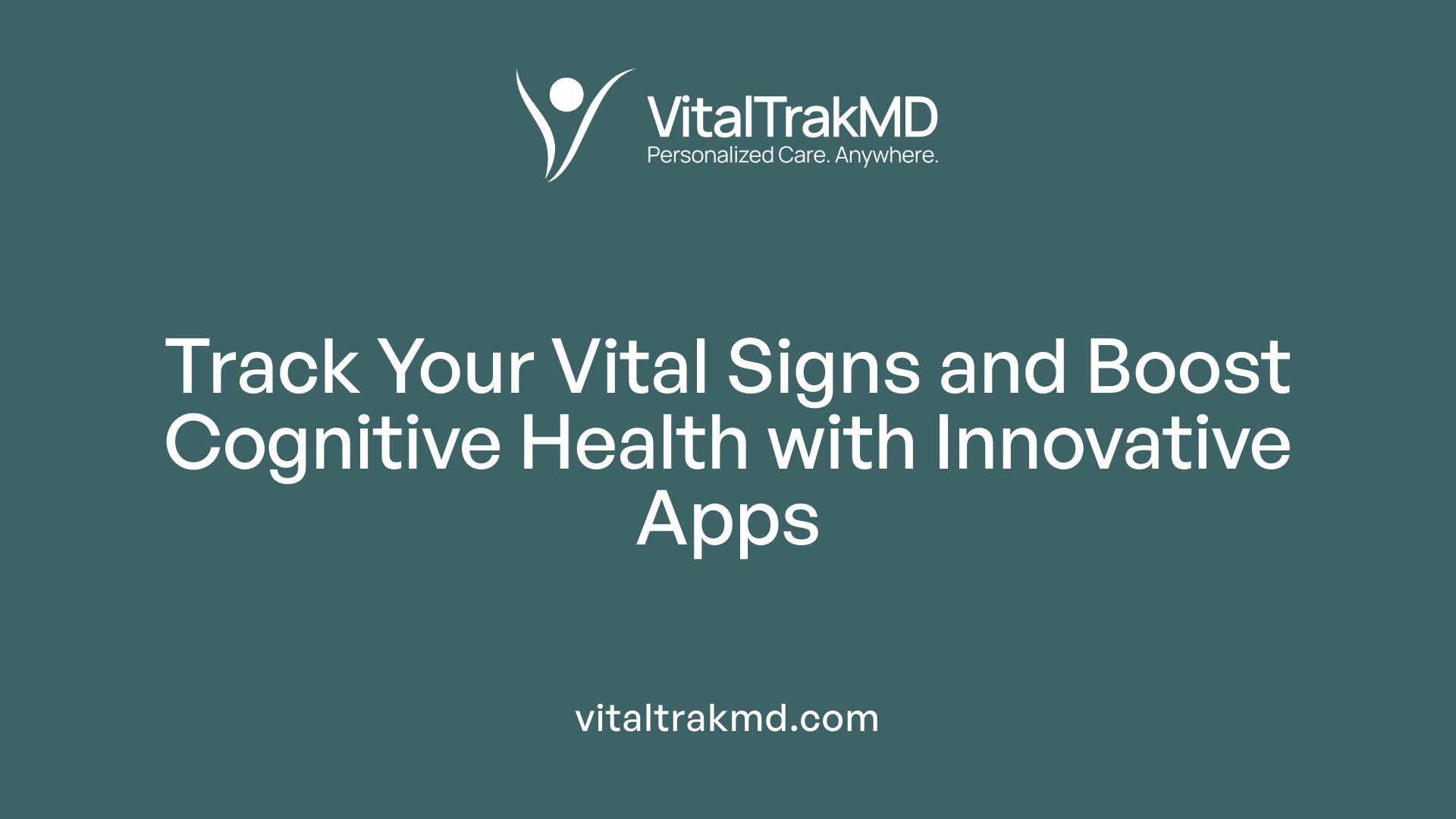
What Apps Help Track Vital Signs Like Heart Rate, Blood Pressure, and Blood Sugar?
Many mobile apps empower older adults to monitor vital health indicators conveniently. Blood Pressure Monitor apps, for instance, enable users to regularly check and log their blood pressure and weight. These apps often include features to export data, making it straightforward to share readings with healthcare providers for ongoing management. Similarly, apps designed to track heart rate and blood sugar levels aid seniors in keeping close tabs on their cardiovascular and diabetic health, facilitating timely interventions and better disease control.
How Do Memory-Enhancement and Mental Fitness Apps Support Cognitive Health?
Cognitive wellness is crucial for aging adults, and several apps offer engaging ways to stimulate mental activity. Memory-enhancement apps present a variety of puzzles and games that challenge memory and cognition, potentially slowing cognitive decline. For example, mental fitness platforms like Lumosity provide designed exercises tailored to maintain brain function. Additionally, Tai Chi for Beginners includes routines that not only improve balance and flexibility but also promote mental clarity and relaxation.
How Is Health Data Integration with Healthcare Providers Beneficial?
Digital health tools greatly improve communication between seniors and their healthcare teams. Apps that collect vital sign data or track medication usage can securely share this information with doctors, enabling more informed decisions. This integration helps ensure timely adjustments to treatment plans and supports medication compliance through reminders and refill tracking. The ability to transmit health metrics remotely fosters continuous monitoring and personalized care without frequent clinic visits.
Together, these digital health tools offer a multifaceted approach to health monitoring and cognitive support, enhancing seniors' ability to manage their health proactively and maintain quality of life.
Social Connectivity and Medication Management Through Technology
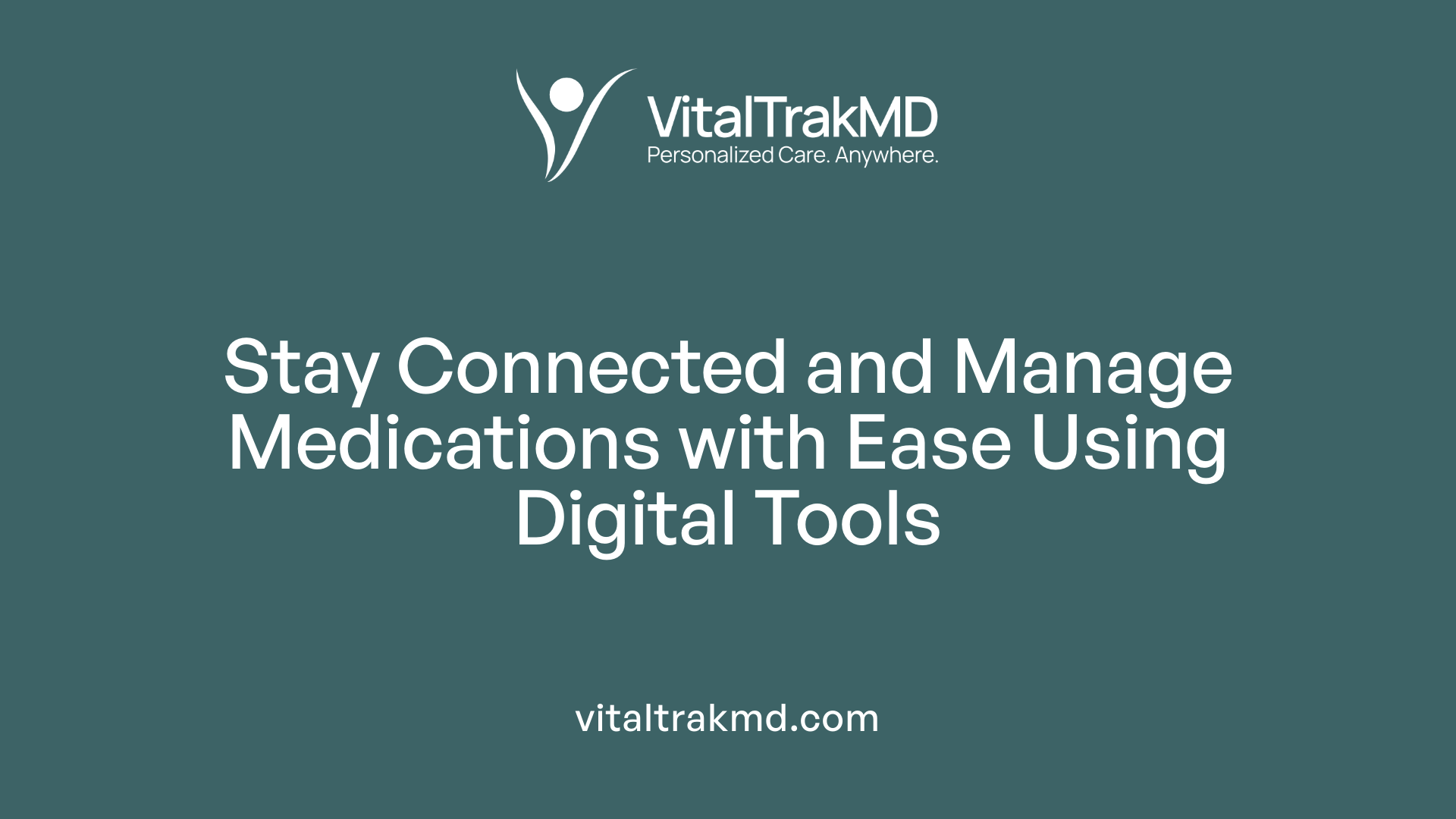
Apps That Reduce Loneliness and Support Emotional Well-being
Staying socially connected is essential for older adults' emotional health. Popular social apps like Facebook and Skype enable seniors to maintain communication with family and friends, helping to reduce feelings of loneliness. These platforms offer video calls, messaging, and social sharing that keep users engaged and emotionally supported regardless of distance.
Medication Reminder and Management Features
Medication adherence can be challenging for seniors managing multiple prescriptions. Health apps equipped with medication reminder features send alerts for timely dosing, track medication refills, and often allow integration with healthcare providers' systems. This enables seniors to stay on top of their treatment plans and helps prevent missed doses, enhancing overall health outcomes.
Role of Technology in Senior Living Communities
Technology is increasingly integrated into senior living communities to promote health and wellness. Digital tools, including diet-tracking apps, smartwatches, and digital scales, encourage engagement in weight management and physical activity programs. Moreover, these communities use health apps to monitor vital signs, facilitate medication compliance, and provide mental fitness exercises, creating a comprehensive environment to support seniors' well-being.
Integrating Technology for Holistic Senior Wellness
The integration of digital tools into seniors' daily lives offers a promising avenue to enhance their health and wellness through improved activity tracking, dietary management, and cognitive support. While apps and programs provide valuable resources, combining these tools with professional guidance and social engagement promotes a comprehensive approach to successful aging. As technology continues to evolve, older adults are increasingly empowered to take charge of their well-being with accessible, user-friendly solutions that support sustained independence and quality of life.
References
- The Top 8 Fitness Apps for Older Adults | Torrance Memorial
- About the Body Weight Planner - NIDDK
- Find the Best Weight Loss App for You
- Eat Smart. Move More. Lose Weight.
- 4 Best Mobile Apps To Improve Senior's Overall Health
- Digital health tracking tools help individuals lose weight, study ...
- 5 Of The Best Health Apps For Seniors
Recent articles
Want to Feel Better and Live Healthier?
Join hundreds of patients taking control of their health with personalized care that fits their life – not the other way around.
Rated 4.8/5 by 32+ customers







